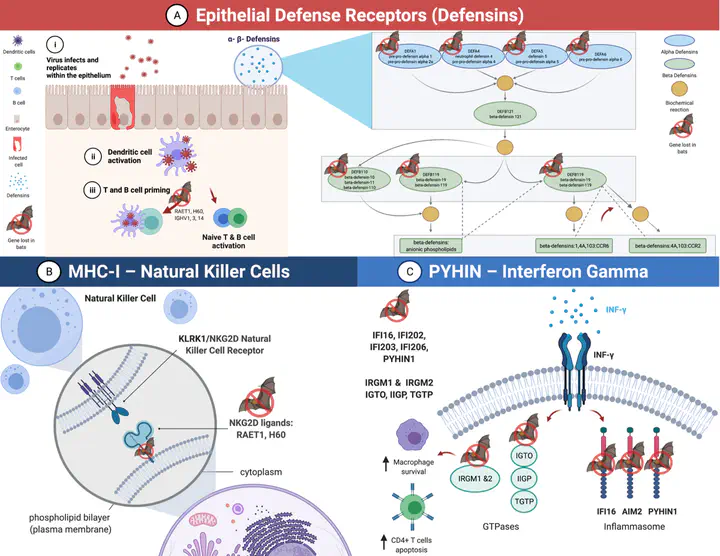Large-Scale Genome Sampling Reveals Unique Immunity and Metabolic Adaptations in Bats
 Image credit: T. Lama & A. Corthals
Image credit: T. Lama & A. Corthals
Abstract
Comprising more than 1,400 species, bats possess adaptations unique among mammals including powered flight, unexpected longevity, and extraordinary immunity. Some of the molecular mechanisms underlying these unique adaptations includes DNA repair, metabolism and immunity. However, analyses have been limited to a few divergent lineages, reducing the scope of inferences on gene family evolution across the Order Chiroptera. We conducted an exhaustive comparative genomic study of 37 bat species, one generated in this study, encompassing a large number of lineages, with a particular emphasis on multi-gene family evolution across immune and metabolic genes. In agreement with previous analyses, we found lineage-specific expansions of the APOBEC3 and MHC-I gene families, and loss of the proinflammatory PYHIN gene family. We inferred more than 1,000 gene losses unique to bats, including genes involved in the regulation of inflammasome pathways such as epithelial defense receptors, the natural killer gene complex and the interferon-gamma induced pathway. Gene set enrichment analyses revealed genes lost in bats are involved in defense response against pathogen-associated molecular patterns and damage-associated molecular patterns. Gene family evolution and selection analyses indicate bats have evolved fundamental functional differences compared to other mammals in both innate and adaptive immune system, with the potential to enhance anti-viral immune response while dampening inflammatory signaling. In addition, metabolic genes have experienced repeated expansions related to convergent shifts to plant-based diets. Our analyses support the hypothesis that, in tandem with flight, ancestral bats had evolved a unique set of immune adaptations whose functional implications remain to be explored.